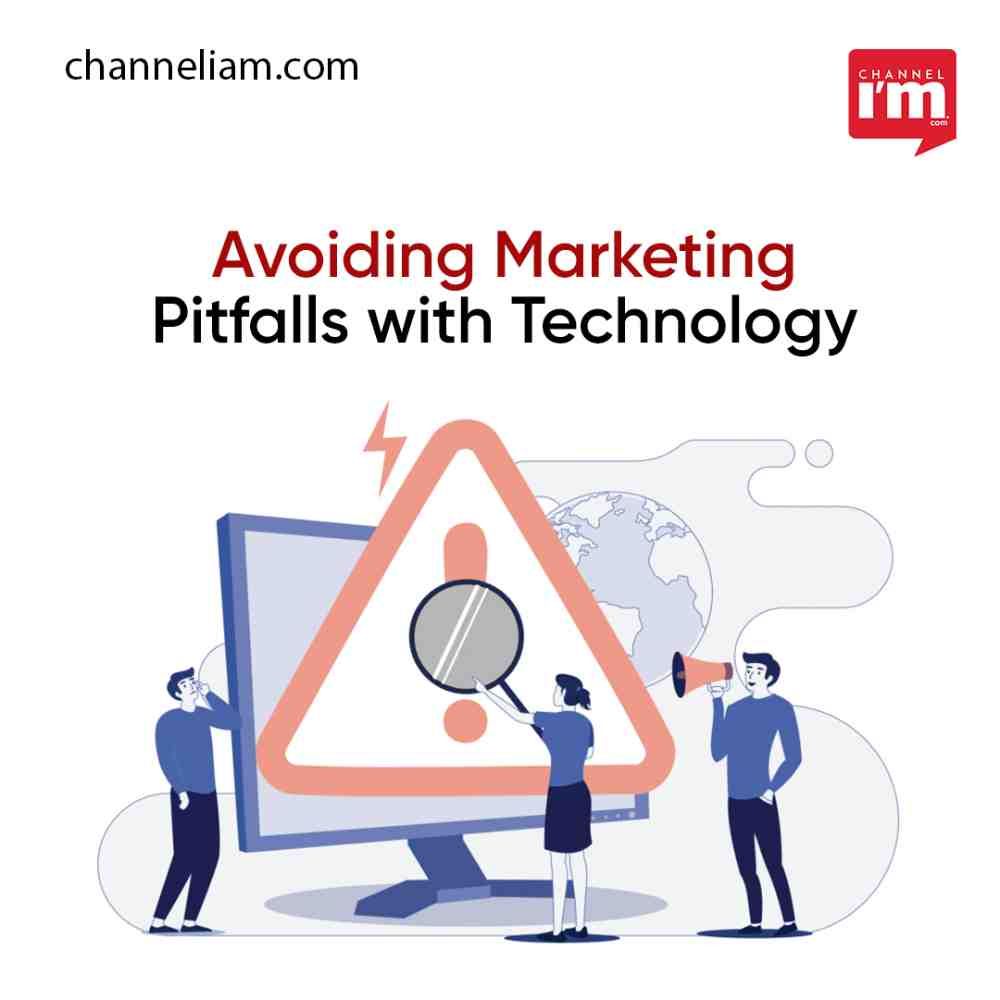In the modern business landscape, technology has emerged as a driving force behind marketing efforts for companies of all sizes.

Small and medium-sized enterprises (SMEs) have especially embraced technology for its promises of efficiency, automation, and reach. However, as we explored in our previous column, technology is not a one-size-fits-all solution. In this article, we delve into the potential pitfalls where technology can fail marketing for SMEs.
1. Rushing In Without a Clear Strategy
One of the most common missteps is adopting technology without a well-defined marketing strategy. Many SMEs dive headfirst into digital marketing tools with hopes of quick results. However, technology alone cannot guarantee success without a coherent strategy. An example of this pitfall is a clothing boutique that invested in email marketing automation but failed to segment its email list properly. Consequently, customers received irrelevant offers, leading to subscriber attrition.
2. Overusing Technology Can Alienate Audiences

In the age of social media and email marketing, excessive use of technology can lead to audience saturation and alienation. Constant bombardment of messages can turn potential customers away. While technology enables consistent communication, it’s crucial to strike a balance between visibility and respecting the audience’s space.
3. Ignoring or Mishandling Customer Feedback
Technology provides numerous tools for collecting customer feedback, such as surveys and reviews. However, ignoring or mishandling this feedback can result in marketing failures. For instance, a restaurant collected customer feedback but failed to address negative comments promptly. Over time, online reviews became increasingly negative, affecting the eatery’s reputation. It’s essential to act on customer feedback to improve services and maintain a positive brand image.
4. Neglecting the Human Element
Automation and AI can streamline marketing processes, but they should complement rather than replace the human touch. Neglecting the human element can result in a lack of authenticity and trust. A travel agency implemented chatbots for customer inquiries but found that the bots couldn’t effectively answer complex queries, leading to frustrated customers seeking personalized advice from competitors.
5. Neglecting Data Security

The use of technology in marketing often involves handling customer data. Neglecting data security can lead to breaches, eroding customer trust and damaging the brand’s reputation. An online store suffered a data breach due to inadequate cybersecurity measures, resulting in a loss of customer trust and sales. Safeguarding customer data is paramount to prevent such catastrophic failures.
Common Pitfalls in Tech-Driven Marketing
Beyond the aforementioned challenges, several other common pitfalls await SMEs that use technology in their marketing efforts:
- Over-automation can lead to a lack of customization and authenticity.
- Mishandling customer data can lead to privacy breaches and legal issues.
- Neglecting mobile optimization can result in a poor user experience.
- Overreliance on AI can lead to uninteresting marketing materials.
- Ignoring emerging platforms can lead to missed opportunities.
- Overlooking user experience can deter users and impact conversion rates.
- Content overload can overwhelm customers and lead to content fatigue.
- Misaligned metrics can result in misguided efforts.
- Neglecting the human touch in customer service can lead to attrition.
- Failure to adapt to new technologies and trends can render SMEs obsolete.
To steer clear of these pitfalls, SMEs should approach technology-driven marketing with a strategic mindset, a strong customer-centric focus, and a commitment to ethical and data privacy considerations. In this way, technology can become a powerful ally rather than a potential stumbling block for SMEs aiming to thrive in the digital age.
